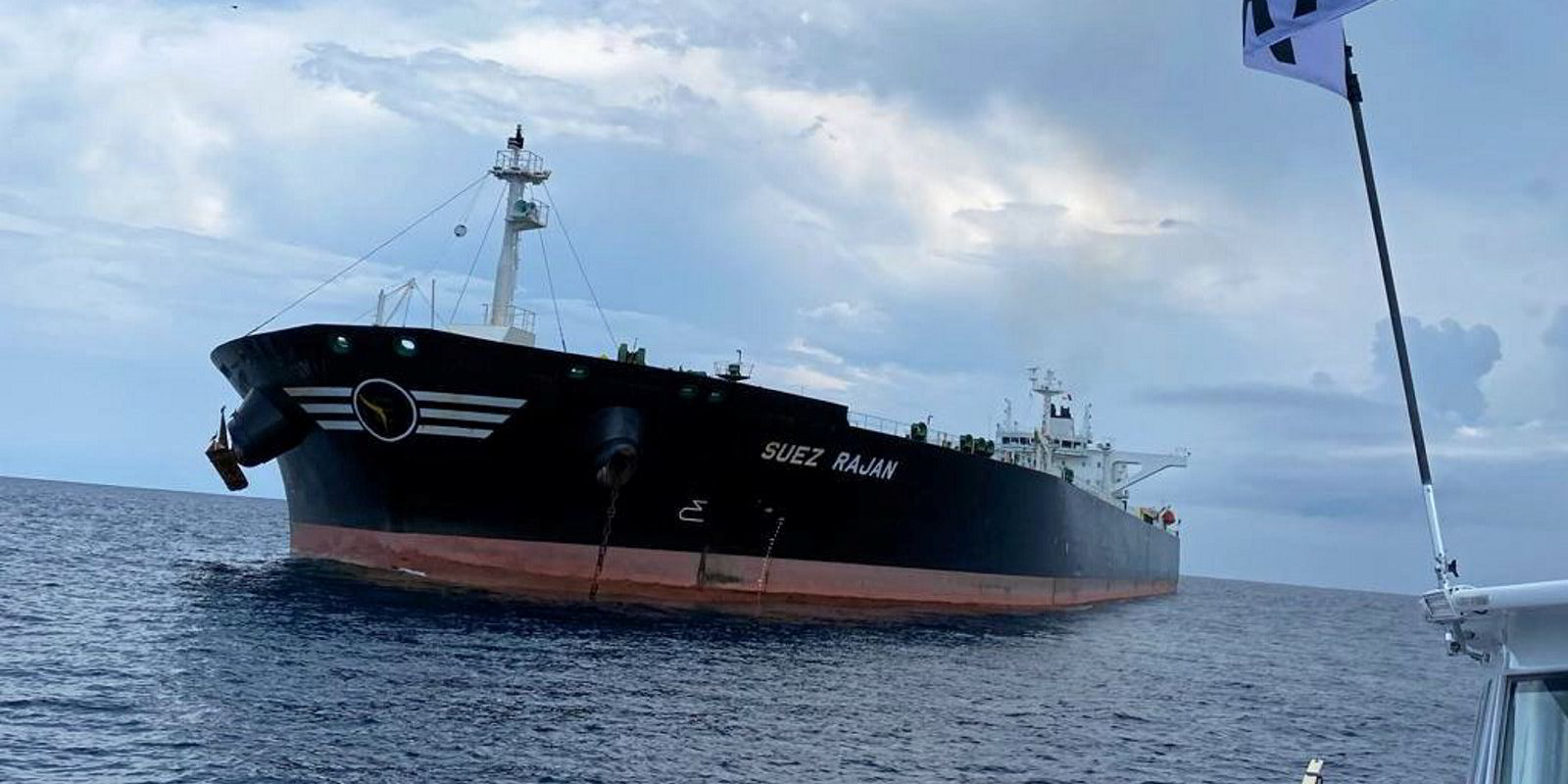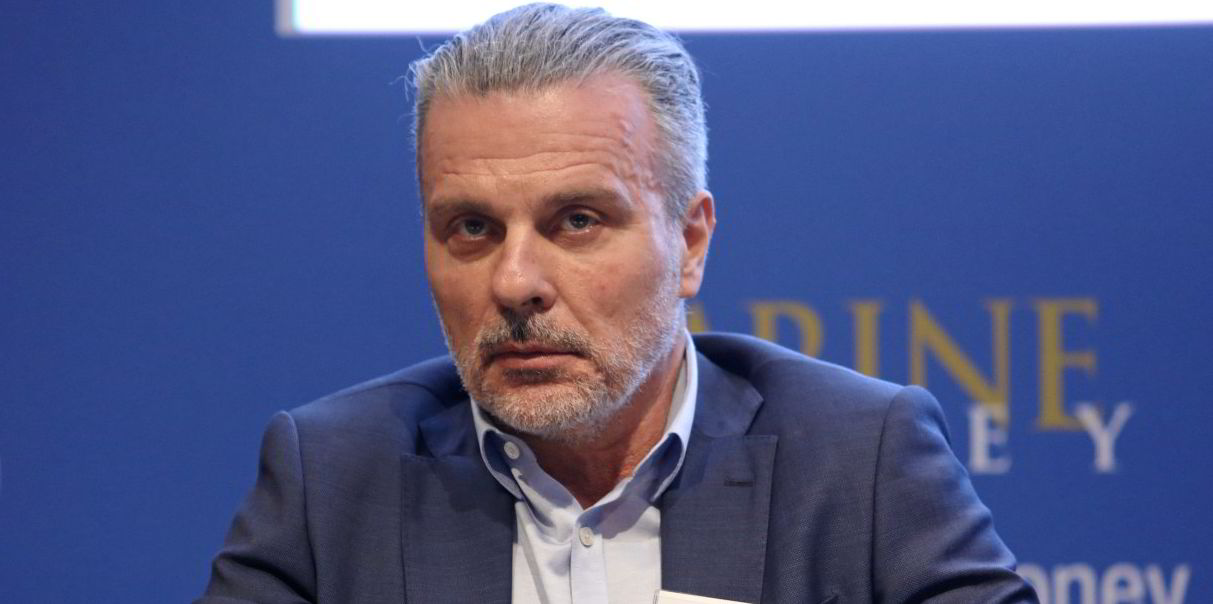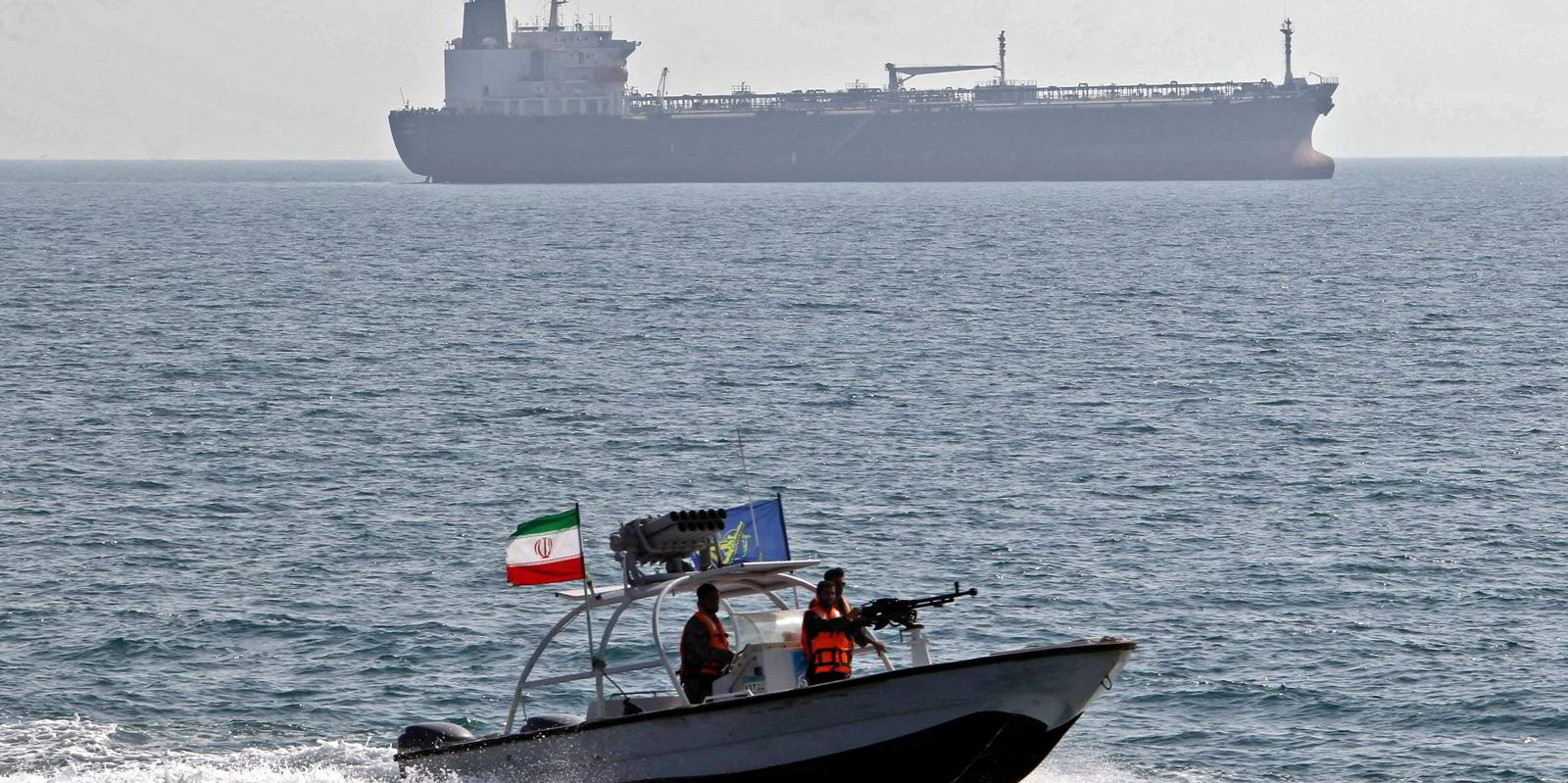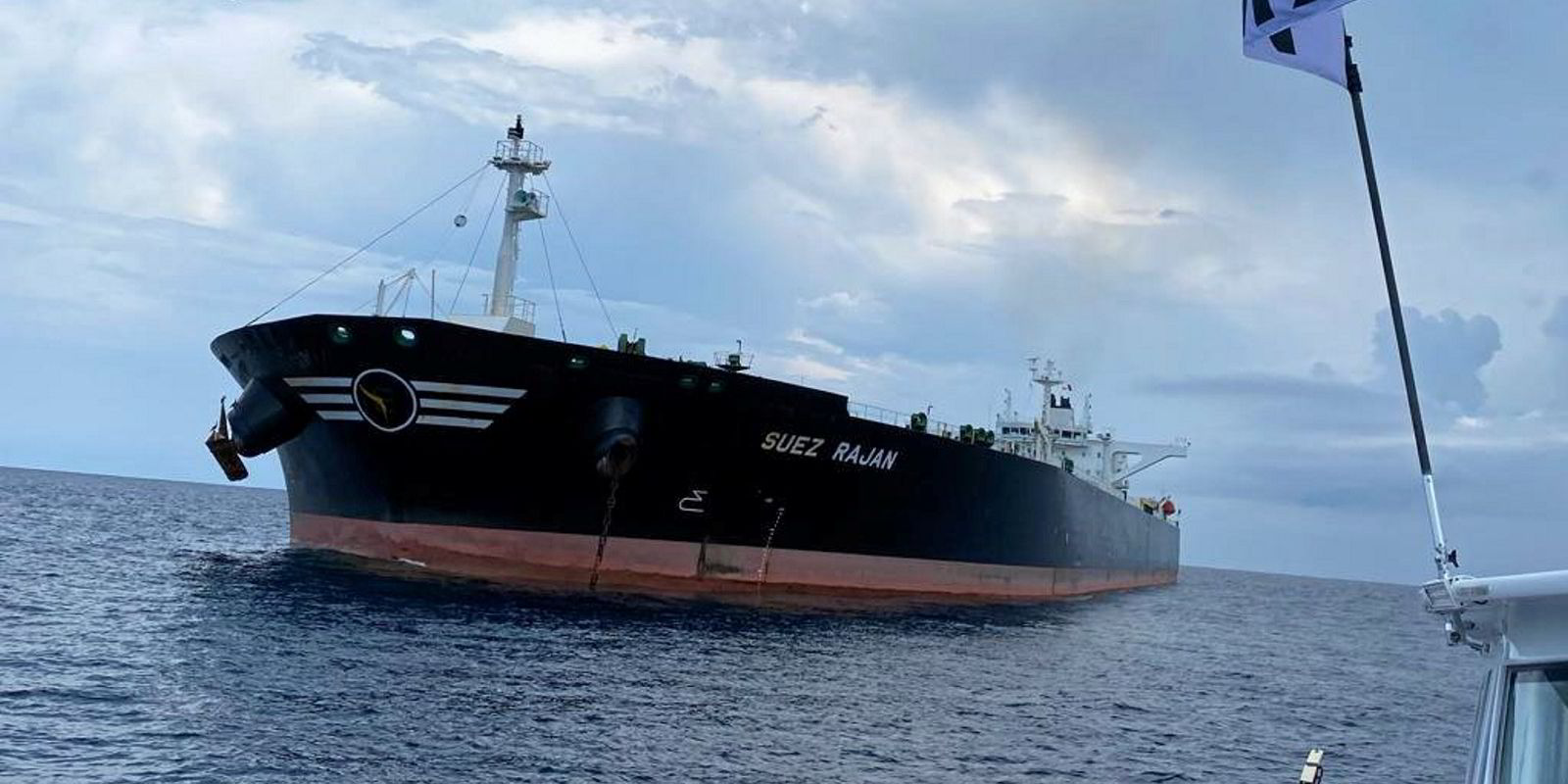The Greek owner of a suezmax seized by Iranian forces last week has for the first time made indirect contact with the vessel’s seafarers.
All crew members on board the 158,600-dwt St Nikolas (ex-Suez Rajan, built 2011) are “safe … in good health” and “in good spirit”, Empire Navigation said.
The vessel remains incommunicado after the Iranian forces disabled its satellite communication system.
Its Greek owner, Stamatis Molaris, managed, however, to get permission for his local protection and indemnity correspondent to visit the ship and meet crew members.
Armed Iranian forces boarded the St Nikolas by helicopter early on 11 January as it was underway off Oman. The move was in reprisal for the owner’s cooperation with US action last year to seize Iranian oil the ship was carrying.
The St Nikolas is now anchored near the Iranian port of Bandar Abbas, where it was handed over to the judicial authorities that had ordered its capture.
There are 18 Filipino seafarers and one Greek cadet officer on board.
They are not the only ones captive in the region.
Twenty-five seafarers of Ray Car Carriers’ 5,100-ceu Galaxy Leader (built 2002) have been held since mid-November by the Houthi group in Yemen.

Most are Filipinos but there are also Bulgarians, Mexicans and a Romanian on board.
Bulgarian authorities are engaged in talks with the Houthis to release them. At the end of December, Filipino officials expressed optimism that this might happen soon.
It is unclear, however, if the situation has changed since the US and the UK began airstrikes against Houthi targets last week.
Somali pirates
A further 17 seafarers on Navibulgar’s 41,600-dwt Ruen (built 2016) have been held by Somali pirates since 14 December — nine from Myanmar, seven from Bulgaria and one from Angola.
Bulgarian Prime Minister Nikolay Denkov confirmed on Monday that the Ruen abduction is a case of piracy. “The question is how much the ransom will be,” Bulgarian news agency BTA reported, citing Denkov.
Seafarers held in Iran over disputes pitching the country against the US can hope to be freed eventually, even if their vessels remain stuck there.
Experience shows that Tehran agrees after some weeks to release crews after vessel managers send other seafarers willing to replace them.
That happened in the case of the 157,400-dwt Delta Poseidon (built 2011) and 150,000-dwt Prudent Warrior (built 2017) — well before Iran released the two tankers after six months of capture.
TradeWinds understands that crew exchanges also took place on Advantage Tankers’ 159,100-dwt Advantage Sweet (built 2012), a suezmax that is still in Iranian custody.
Paul Peachey contributed to this story





